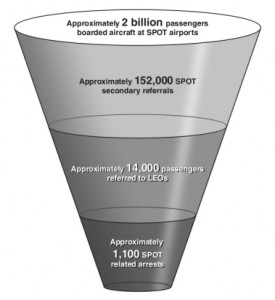“Freedom Flyer” Phil Mocek to go on trial June 14th in Albuquerque
[UPDATE: The trial which was scheduled to begin June 14, 2010 has been postponed. Check our FAQ about the case or the court calendar for further updates as soon as they are available.]
We’ve written previously about the arrest of Phil Mocek at a TSA checkpoint at the airport in Albuquerque last November. Mr. Mocek had a valid ticket on Southwest Airlines (“You are now free to move about the country”), and was attempting to get to his flight. Like the “Freedom Riders” of the 1960s on interstate buses, Mr. Mocek sought to exercise his Federally and Constitutionally-guaranteed right to travel, but was arrested by local police for alleged violations of state and local laws and ordinances.
So far as we can tell, this is the first time someone in the USA has been arrested or charged with a crime for attempting to exercise their right to travel by air without showing ID or answering questions about themselves or their trip, or for photography or audio or video recording at a TSA checkpoint.
Mr. Mocek is now scheduled to go on trial starting June 14th on charges of violating four state and local ordinances carrying a total maximum sentence of 15 months in jail. (The charges could still be dropped, and the trial could be rescheduled. We’ll post an update in this blog and in our FAQ about the case if we learn of any change in the schedule.)
